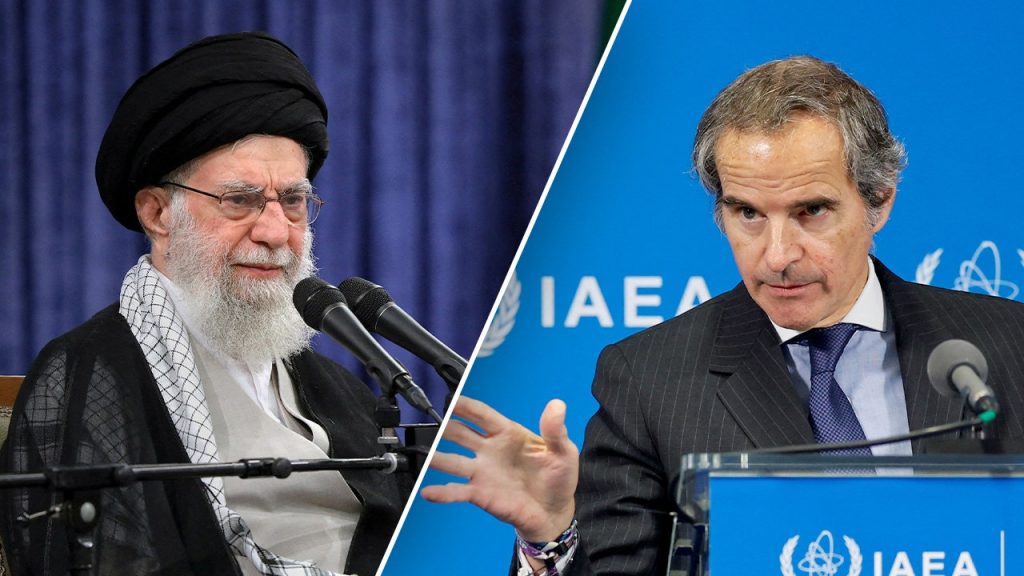In a significant escalation of tensions, Iranian President Masoud Pezeshkian has enacted a law that effectively halts Tehran’s cooperation with the International Atomic Energy Agency (IAEA). This development comes shortly after the U.S. executed Operation Midnight Hammer, targeting three pivotal nuclear facilities in Iran. The new legislation requires that any IAEA inspections of Iran’s nuclear sites must first receive approval from the Supreme National Security Council, aligning with Tehran’s claims that the IAEA has taken sides in recent conflicts.
| Article Subheadings |
|---|
| 1) New Law Halts IAEA Cooperation |
| 2) Background of U.S. Operations |
| 3) Diplomatic Implications |
| 4) Iranian Government’s Stance |
| 5) International Reactions |
New Law Halts IAEA Cooperation
The law enacted by President Pezeshkian prohibits any IAEA inspections from occurring without clearance from Iran’s Supreme National Security Council. This legislative move is seen as a direct reaction to perceived threats against Iran’s nuclear facilities. The Iranian government has articulated its belief that international oversight has been biased, especially following recent military actions carried out by the U.S. and its allies. The lack of a specific timeline for implementing this suspension raises questions about the future of Iran’s nuclear program and international diplomacy related to it.
Background of U.S. Operations
Operation Midnight Hammer, which took place just days before the new legislation was enacted, involved targeted airstrikes on three major Iranian nuclear sites: Natanz, Isfahan, and Fordow. These locations have long been under scrutiny due to their role in Iran’s atomic ambitions. Officials have stated that these strikes aimed to cripple Iran’s nuclear capabilities substantially. In the wake of these operations, the Middle Eastern geopolitical landscape has shifted, creating new challenges for both Iranian leadership and international diplomatic efforts.
Diplomatic Implications
Amidst rising tensions, diplomatic negotiations between the U.S. and Iran have stalled since the onset of military actions against Iran’s nuclear sites. Iranian officials have expressed their hesitance to return to the negotiating table, citing fears of continued military aggression from the U.S. and its allies. Abbas Araghchi, Iran’s Foreign Minister, has indicated that while diplomatic doors remain open, the path forward is fraught with complications. He stated, “In order for us to decide to reengage, we will have to first ensure that America will not revert back to targeting us in a military attack during the negotiations.”
Iranian Government’s Stance
In response to international actions and the IAEA’s role, the Iranian government has maintained a firm stance. They view the IAEA’s actions as complicity with U.S. and Israeli interests, arguing that supporting resolutions against Iran paved the way for military strikes. This narrative has gained traction among Iranian officials, with many seeing cooperation with international organizations as a matter of national sovereignty. The government’s messaging appears aimed at solidifying domestic support against perceived external threats, emphasizing their intent to pursue a nuclear program free from foreign oversight.
International Reactions
The global community has responded with mixed feelings regarding Iran’s recent moves. Experts are divided on the implications of the new law and its impact on nuclear proliferation in the region. Some analysts view this as a potential step towards increased instability, while others argue that Iran’s actions are a logical response to its perceived vulnerability. As talks between world powers and Iran remain suspended, concerns rise over the potential for further military action and escalation in the already volatile Middle East. With tensions running high, collaboration amongst world powers is crucial to addressing the evolving situation.
| No. | Key Points |
|---|---|
| 1 | Iran has enacted a law ending cooperation with the IAEA. |
| 2 | The law requires Supreme National Security Council approval for future IAEA inspections. |
| 3 | The U.S. has conducted military operations targeting Iranian nuclear sites shortly before this legislation. |
| 4 | Iranian officials express dissent towards U.S. and Israeli actions, alleging bias from the IAEA. |
| 5 | The diplomatic future remains uncertain as Iran weighs its options against military threats. |
Summary
The recent law enacted by President Pezeshkian marks a critical turning point in Iran’s relationship with the IAEA and heightens concerns about nuclear proliferation in the region. As diplomatic avenues appear increasingly tenuous, the implications of both military actions and the Iranian government’s response could further destabilize this already complex geopolitical landscape. Continued vigil among international actors is vital to navigating the evolving dynamics in the Middle East.
Frequently Asked Questions
Question: What is Operation Midnight Hammer?
Operation Midnight Hammer refers to the U.S.-led military operation that targeted three key Iranian nuclear facilities, namely Natanz, Isfahan, and Fordow, aiming to cripple Iran’s nuclear capabilities.
Question: What does the new law entail for the IAEA?
The new law requires that any future IAEA inspections of Iran’s nuclear facilities must be approved by the Supreme National Security Council, effectively limiting international oversight.
Question: How have Iranian leaders responded to U.S. military actions?
Iranian leaders have condemned U.S. actions as aggressive and claim that international organizations like the IAEA have sided with U.S. and Israeli interests, further complicating diplomatic efforts.


